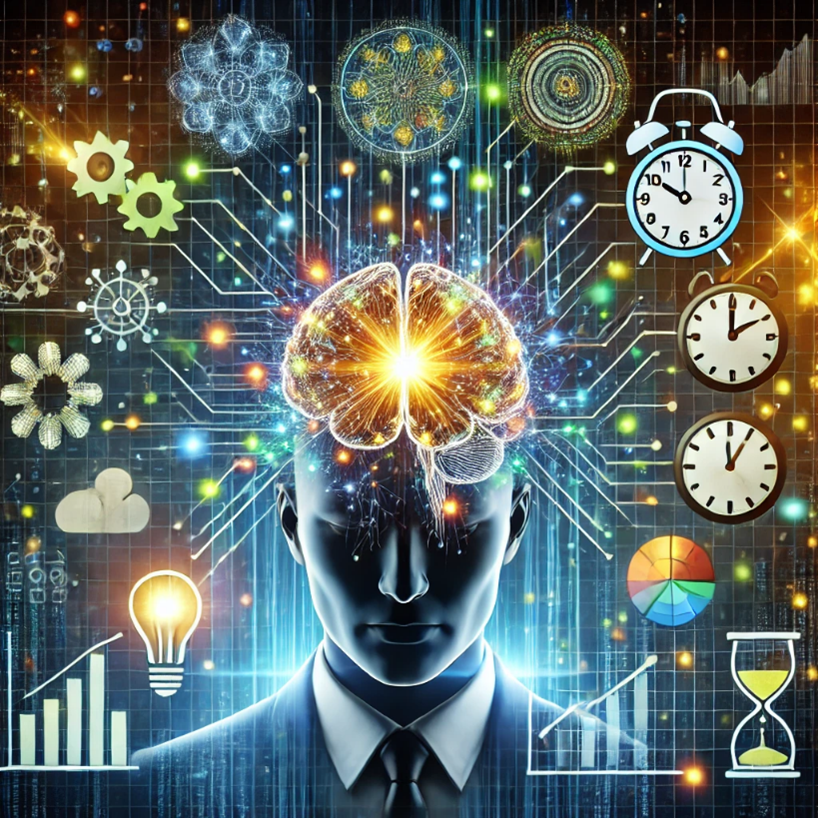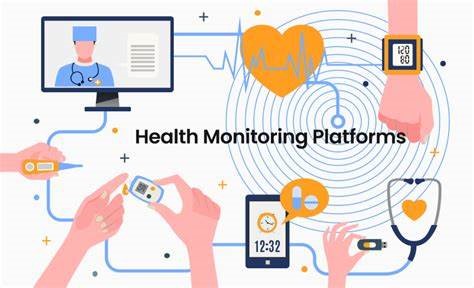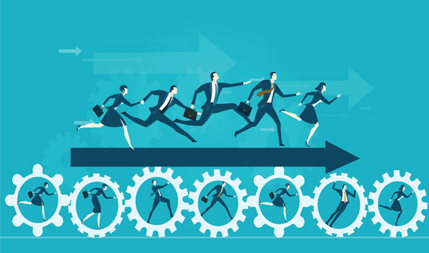How can AI-powered brain-computer interfaces improve human productivity and health?

How can AI-powered brain-computer interfaces improve human productivity and health?
by Maximilian 10:20am Jan 30, 2025

AI-powered brain-computer interfaces (BCIs) have the potential to revolutionize human productivity and health by providing innovative ways to interact with technology and monitor the brain's activity. These interfaces leverage machine learning, neurofeedback, and real-time brain data to optimize cognitive functions, enhance physical abilities, and provide solutions to various health challenges. Here’s how AI-powered BCIs can improve both human productivity and health:
1. Enhancing Cognitive Performance and Productivity
Improved Focus and Attention: AI-powered BCIs can monitor brainwave activity in real-time and provide feedback that helps individuals improve their concentration and focus. For instance, through neurofeedback techniques, BCIs can detect when a person’s mind wanders and prompt them to refocus, thereby enhancing productivity in tasks requiring deep focus, like problem-solving or creative work.
Mental Fatigue Monitoring: AI can track cognitive load and detect early signs of mental fatigue or stress, enabling users to take breaks at the optimal time to prevent burnout. This could improve overall productivity by ensuring that individuals are working at their peak mental capacity.
Task Automation and Control: BCIs can be used to control external devices (such as computers, drones, or robotic systems) purely through brain signals. By allowing users to perform tasks faster and more efficiently, these interfaces could improve workplace productivity, especially in fields requiring complex manual or technical tasks.

2. Health Monitoring and Disease Management
Early Diagnosis of Neurological Conditions: AI-powered BCIs can monitor brain activity to detect early signs of neurological diseases such as Alzheimer's, Parkinson's, and epilepsy. By identifying abnormal patterns or early biomarkers, AI can enable earlier intervention and more effective treatment options, potentially slowing disease progression and improving quality of life.
Neurorehabilitation: BCIs can be used in the rehabilitation of patients with brain injuries or neurological disorders by providing real-time feedback and exercises to retrain brain functions. For example, after a stroke, patients can use BCI systems to help restore motor skills or improve speech through brain activity modulation and targeted therapies.
Epilepsy and Seizure Control: AI can analyze brain signals to predict the onset of seizures in patients with epilepsy. This prediction can trigger interventions, such as administering medication or alerting caregivers, to prevent or minimize the severity of seizures, improving patient safety and quality of life.
3. Mental Health and Emotional Well-being
Stress and Anxiety Reduction: AI-driven BCIs can help individuals manage stress and anxiety by providing real-time insights into brainwave activity. By using neurofeedback, individuals can learn how to control their brain activity, leading to reduced stress levels and improved emotional regulation.
Mood Monitoring and Intervention: BCIs could also be used to monitor emotional states, detecting changes in mood or signs of mental health conditions such as depression. Based on these insights, personalized interventions (e.g., relaxation exercises, cognitive behavioral therapy) could be recommended, helping users maintain mental health balance.
Personalized Mental Health Treatments: AI can tailor mental health treatments based on individual brainwave patterns. This can result in more effective treatments for conditions like depression, anxiety, or PTSD, as AI learns to adapt the approach based on the patient’s responses to different therapies.

4. Improving Sleep Quality
Sleep Monitoring: AI-powered BCIs can provide detailed insights into sleep patterns by analyzing brainwaves during different stages of sleep. This data can be used to detect sleep disorders such as insomnia or sleep apnea, allowing individuals to adjust their behaviors for better sleep hygiene.
Sleep Enhancement: Based on real-time brain data, AI could offer personalized sleep improvement techniques, such as adjusting environmental factors (e.g., lighting, temperature) or guiding the user through relaxation exercises to promote deeper, more restorative sleep.
5. Assistive Technology for Disabilities
Empowering People with Physical Disabilities: For individuals with physical disabilities (e.g., paralysis), AI-powered BCIs can enable them to control prosthetics, robotic exoskeletons, or other assistive devices using just their brain signals. This can significantly improve mobility, independence, and quality of life for people with mobility impairments.
Speech and Communication Aid: For individuals who have lost the ability to speak (due to conditions like ALS or stroke), AI BCIs can help translate brain activity directly into speech or text, allowing for more natural communication. This technology can restore the ability to interact socially and professionally.
6. Mindful Productivity and Enhanced Creativity
Creative Workflow Optimization: AI BCIs can help enhance creative processes by detecting when a person is in a "flow" state, a mental condition associated with peak creativity and productivity. When a person is in flow, BCIs can prompt them to continue working or help reducen distractions, maximizing creative output in fields like writing, design, or innovation.
Personalized Learning and Skill Acquisition: BCIs can be used to optimize the learning process by monitoring brain activity during study or training sessions. AI can provide real-time feedback on the effectiveness of learning strategies, helping individuals retain information more efficiently and tailor educational content to their specific cognitive needs.
7. Physical Health and Fitness
Brain-Body Connection for Fitness: AI BCIs can enhance physical performance by providing real-time feedback on brain activity related to muscle movement and motor control. For example, athletes can use BCIs to optimize mental focus and control during training, leading to better physical performance.
Pain Management: For individuals with chronic pain, AI-powered BCIs could help by training the brain to reframe or reduce pain signals. This technique, often called neurofeedback, helps individuals manage pain through cognitive strategies, reducing dependence on medications and improving overall health.

8. Real-time Data for Medical Research
Brain Activity Research: AI-powered BCIs enable researchers to gain unprecedented insights into how the brain functions and how it responds to various stimuli or therapies. This can accelerate discoveries in neuroscience, contribute to the development of new treatments, and enhance understanding of brain-related disorders.
Personalized Medicine: Data from AI BCIs can be integrated with other health data (e.g., genetic information, medical histories) to create more personalized healthcare plans, improving the effectiveness of treatments and interventions for individuals.
Conclusion:
AI-powered brain-computer interfaces hold tremendous potential to improve human productivity and health by providing real-time insights into brain activity, optimizing mental and physical performance, and enabling personalized health management. These interfaces can enhance cognitive abilities, manage mental health, assist in rehabilitation, and even offer new solutions for those with physical or neurological impairments.






